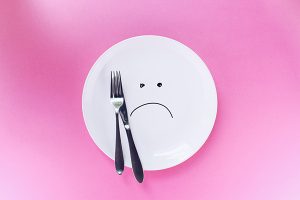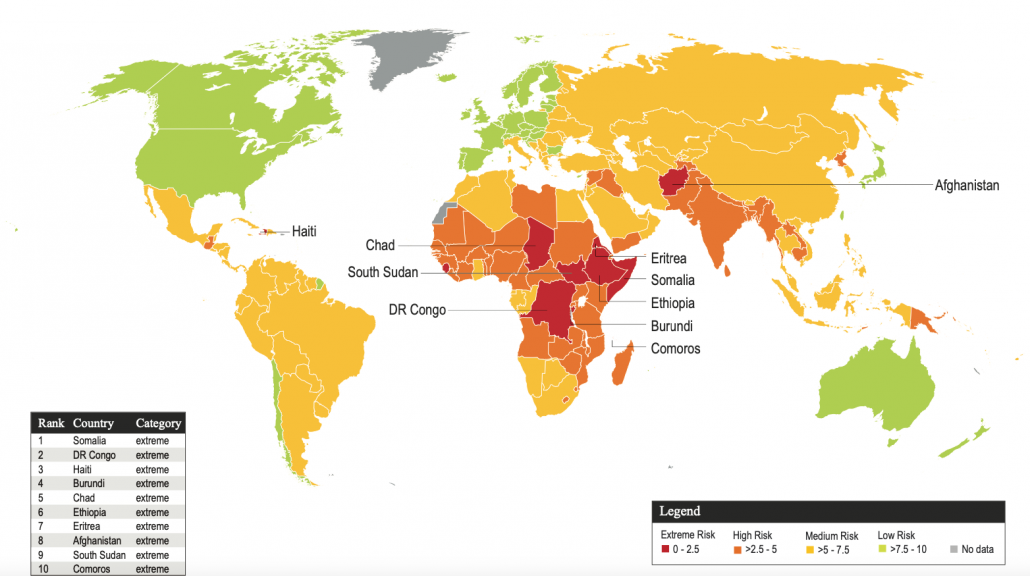
When you exercise, you burn more calories than usual. EPOC is the term for this post-exercise effect. It can last up to ten hours. The type of exercise you do will affect the calories burned. However, intense training can have the same results as moderately intense ones. For example, a two-hour hard run might burn forty-sixty calories. Your muscles may not be exhausted by a moderately fast jog.
HIIT increases calorie burn for up to 24 hours
HIIT is well-known for its ability to stimulate your body’s fat-burning mechanism. HIIT training can boost your metabolism and burn calories for as long as 24 hours after a workout. Colorado State University researchers studied the effects of HIIT and calorie reduction using a metabolic room to measure carbon dioxide intake and oxygen consumption. Their results showed that HIIT could increase postworkout calorie burned by as much as 24%
HIIT exercise includes sprinting, running or cycling as well jumping rope. You can also do plyometrics to increase your heart beat. HIIT exercises are effective if you do not have any equipment, however. Your heart should beat at maximum speed and not just the maximum. You will see results that last for a long time if you push your heart to its limits.

Weightlifting increases calorie burn for up to 3 hours
Many people choose to weightlift as their primary exercise. This form of exercise increases your metabolism, which means you burn more calories during and after your workout. To make weightlifting more effective, you need to use heavier weights and push yourself hard enough to increase your muscle mass. Lifting heavy weights releases two hormones into your body: cortisol and human growth hormone. These hormones can help you burn more calories after your workout and even while you are resting, which will allow you to lose weight.
For a woman of average build, a 30-minute weight training session can increase calories by as much as 180 calories. These numbers are based upon the Harvard medical school’s recommended exercises. Your body weight, your intensity of training, and the movements you use will all affect the actual calories burned. Bicep curls burn less calories than compound movements like deadlifts and bench presses.
Exercise causes excess post-exercise oxygen consumption (EPOC)
Your body's excess post-exercise oxygen intake is when your body needs additional energy after a hard workout. This process can last from three to 72 hour and the amount you use depends on how intense your exercise is. Afterburn is also known as excess post-exercise oxygen intake. It refers to the burning of fuel after a workout in order to restore your body to its natural state.
The afterburn effect happens right after a workout. It is your body's way for you to recharge your energy stores. However, the effect of afterburn can last anywhere between 15 and 48 hours. The result of higher caloric intake is increased post-exercise Oxygen consumption. The exercise intensity and duration are key factors in excess postexercise oxygen consumption.

Resistance training increases calorie burn during and after a workout
In 2013, a study was conducted to examine the molecular structure changes in fat cells following resistance training workouts. Researchers have focused on muscle health for years. However, fat has been the focus of their research. Some researchers have speculated that the two types of tissues are engaged in a chat after a workout. However, it's difficult to predict which type of exercise will burn the most calories.
Intensity of resistance-training sessions directly influences the number of calories burned. A resistance training program with higher intensity will generally result in more calories being burned. Resistance-training exercises are challenging for the muscles and anaerobic system. For example, a man performing two sets of supersets of weight-lifting exercises simultaneously may burn eight to nine calories per minute. Also, a man who did two supersets, five-rep exercises per minute, alternated between 60-180 secs of cardio, will burn more calories than a woman who does the same exercise twice. Circuit training, which alternates cardio training with resistance training is another option. Similar results are seen: resistance training increases caloric consumption before, during and after a workout.
FAQ
How long does weight loss take?
Weight loss takes time. It usually takes six to eight months to lose 10%.
You should not expect to lose weight overnight. Your body needs time to adjust to new dietary changes.
This means that you should gradually change your diet over several days or weeks.
Fad diets don't work and you should get off them. Instead, you should change your daily routine.
Consider, for instance, that you often eat unhealthy snacks late at the night. You need to reduce this behavior.
Eat healthier meals earlier in evening. This will prevent you from snacking late at night.
You should also drink plenty of water during the day. Water keeps you hydrated and prevents your body from becoming dehydrated. You feel tired and slow if you are dehydrated.
Therefore, drinking lots of water throughout the day will help you stay energized and focused.
Doing things that are relaxing can help you reduce stress. You can spend time with family members, for example.
You could also choose to read books, see movies, or listen music.
These activities will help you unwind from stressful situations. They will also improve your mood, self-esteem, and overall well-being.
It is essential to think about your health before you lose weight.
Your overall health can be measured by your physical fitness. If you are looking to improve your physical fitness, it is important that you eat well and do regular exercise.
How often are people quick?
Most people who follow a ketogenic diet fast once per week. Some people fast twice weekly. Others fast three times a week.
Each fast has a different length. Some people fasted for 24 hours and others for 48 hours.
Some people can even travel for up to 72 hours. But these extreme cases are very rare.
What is the best way to exercise when you are busy?
You can stay fit by exercising at home. You don't need to join any gym. You don't need to spend a lot of money on expensive equipment to do basic exercises at home.
You just need to have a pair of dumbbells, a mat, a chair, and a timer.
The most important thing is ensuring you are consistent with your workouts. If you miss a few days, then you may lose all motivation.
Try lifting weights three days per week. This is a great place to start. This could include squats, lunges, push-ups, pull-ups, dips, curls, etc.
Once you have mastered these basic movements, you can move on other types of exercises such as running, jumping rope, skipping, yoga, Pilates, dancing, cycling, swimming, weight training, tennis, golf, hiking, basketball, football, soccer, volleyball, badminton, squash, etc.
Choose the one that fits your lifestyle. You might avoid exercising if your work hours are long.
If you are a night owl you should exercise during the evening instead of in the early morning.
Listen to your body. Stop when you feel tired.
Is there a difference in intermittent fasting and calorie restrictions?
Calorie restriction is a way to eat less than your body needs. Intermittent fasting is different because it doesn't involve restricting calories. Rather, it focuses on eating fewer calories throughout the day.
Intermittent fasting works better because it allows for you to enjoy your favorite foods without feeling guilty.
Both methods have their merits and weaknesses. Therefore, you need to decide whether you prefer one method over another.
How can busy people lose fat?
Losing weight is as easy as eating less and working out more.
You will gain weight if your eat too much. If you don't exercise enough, you'll also gain weight. These two simple habits can help you start losing weight.
What effect does intermittent fasting have on my sleep?
Yes, intermittent fasting can impact your sleep. Your hunger hormones rise when you skip meals. You might find yourself awakened at night due to your hunger hormones.
Experts recommend skipping breakfast. Instead, experts suggest eating a light snack just before bed.
If you still feel hungry after eating this snack, you may want to eat a small breakfast before going to bed.
But remember not to overeat. Otherwise, you'll end up gaining weight instead of losing it.
Statistics
- Another study found that 24 weeks of weight training led to a 9% increase in metabolic rate among men, which equated to burning approximately 140 more calories per day. (healthline.com)
- One study in 9 active men found that HIIT burned 25–30% more calories per minute than other types of exercises, including weight training, cycling, and running on a treadmill (18Trusted Source (healthline.com)
- According to Harvard Health, it's estimated that a 155-pound (70-kg) person burns around 167 calories per 30 minutes of walking at a moderate pace of 4 mph (6.4 km/h) (5). (healthline.com)
- One 6-month study showed that simply doing 11 minutes of strength-based exercises 3 times per week resulted in a 7.4% increase in metabolic rate, on average. (healthline.com)
External Links
How To
How to lose belly fat fast?
You must know that losing belly fat is not easy. It takes hard work and dedication. But if you follow these tips, you will definitely see results.
-
Healthy Food It is essential to eat healthy food. Make sure you eat whole foods, fruits, vegetables.
-
Drink Water. Water keeps you hydrated and makes you feel fuller for longer periods. So drink plenty of water every day.
-
Cardio exercises are a great way to burn calories and build muscle mass. Cardio exercises help to burn more calories, build muscle mass, and improve your cardiovascular health. Cardio exercises can also increase your heart health, and speed up metabolism. Do 30 minutes of cardio exercise each day.
-
Get enough sleep. Good health is dependent on sleep. A lack of sleep can lead anxiety and stress that can then be exacerbated by unhealthy habits like smoking and drinking.
-
Reduce stress levels. Stress has a profound effect on brain chemistry as well as hormonal levels. Cortisol is a hormone that causes stress to increase hunger pangs and increases cravings for high-calorie food.
-
Take regular breaks. Regular breaks are important throughout the day. Take a break and go outside to walk or take a nap. This allows your mind and body to relax and allow you to recover.
-
Avoid Alcohol Consumption. Alcohol has empty calories, and can slow down digestion. You should avoid alcohol if your goal is to lose belly fat.
-
Have Fun